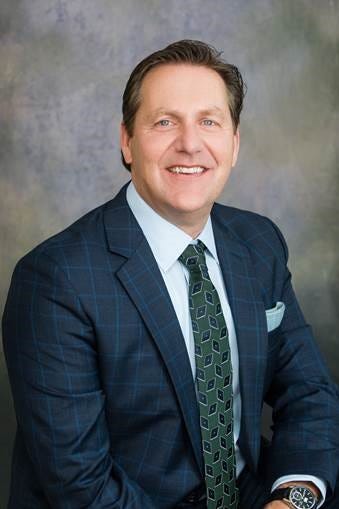“We have conducted several analyses internally that show mental health conditions cause exacerbation of chronic conditions leading to greater utilization and patient decline. By treating mental health and chronic disease together, providers can address the root of the issue and not just the surface.”
As a part of my interview series with leaders in healthcare, I had the pleasure to interview Shawn Morris is the Chief Executive Officer of Privia Health. Leveraging his extensive healthcare background, Shawn leads Privia’s initiatives to meet providers where they are on the transition to value while building strategic partnerships with health plans, health systems, and employers to better align reimbursements to quality and outcomes. Shawn was previously the President and Chief Operating Officer of Cigna-HealthSpring, a Cigna company. He was responsible for the financial and operational performance of Cigna’s Medicare Advantage business, one of the largest companies providing private Medicare solutions, that served 1.5 million Medicare customers and generated $8 billion in revenue. Upon acquisition of HealthSpring by Cigna, Shawn served two years as the President of Development & Innovation, where he was accountable for Cigna-HealthSpring’s strategic direction, business and emerging market development, merger and acquisition activities, and clinical innovation. Shawn joined HealthSpring in 2005, holding multiple key leadership roles from HealthSpring’s IPO in 2006 through the eventual sale to Cigna in January 2012. He was also part of HealthSpring’s predecessor company, North American Medical Management, and served as an integral leader and key contributor alongside HealthSpring founder, Herb Fritch. Shawn earned a Bachelor of Science in Accounting from Western Kentucky University and is a Certified Public Accountant and Certified Financial Planner. He is an inaugural Fellow of the Nashville Healthcare Council and graduate of Dartmouth College’s Tuck Business School 2030 Global Executive program. Shawn is a member of the American Society of CPAs and National Association of Corporate Directors.
Can you share the most interesting story that happened to you since you began leading your company?
During my first few weeks at Privia, I was pleasantly surprised by how many people approached me to share glowing reviews about their experience with our providers. I could be at a Washington Capitals hockey game, in strategy meetings with bankers or talking contract details with national insurance executives — and each time I left smiling because of the impact Privia has made on someone’s life.
I heard stories about compassionate providers and their teams, rave reviews about our patient portal, online resources and telehealth services, and all from people extremely knowledgeable about the industry who have high expectations of their healthcare experience. One man said, “I just want to thank you for making my life easier. Your online portal and billing interface save me time and eliminate the hassle I always associate with the healthcare system.”
What do you think makes your company stand out? Can you share a story?
We know our doctors and we listen. And we don’t pretend to have all the answers. For example, when our doctors wanted to begin offering virtual visits for their patients, we asked, “What are your requirements for this new technology?” And we learned, in addition to a secure and easy-to-use resource, they needed a platform that connects directly into their patient’s medical record to ensure continuity of care.
We investigated more than twenty-five available technology options, and not one met the needs of our physicians. So, after months of research, we took a different direction. We developed our own proprietary technology that seamlessly connects clinical information from each virtual visit directly into the patient’s record. Our doctors were thrilled, and together we solved an ongoing issue patients face when they seek care outside their physician’s office. The outcomes of those outside appointments — their diagnosis, the prescriptions or advice they received — are never communicated to their primary care providers.
We launched the technology last year, and it was just the beginning. Our product development team gathers ongoing feedback from patients and providers, and we continue to develop enhancements to meet their needs. Sure, it might have been easier, and faster, to buy something off the shelf, but we listened to our doctors and committed ourselves to meet their needs now and in the future. This is a perfect example of how we meet providers where they are to transform the healthcare delivery experience.
What advice would you give to other healthcare leaders to help their team to thrive?
We passionately believe that physicians must be, and will be, part of solving the healthcare issues we face in all of our communities. When you partner with physicians, you’ve got to build personal relationships. This means getting to know them as individuals, learning about their families, their hobbies and what excites them about their career in medicine. Learn the names of their kids, their favorite sports teams and maybe even the story of how they met their partner. Everything we do as leaders is driven by people, process and technology — and the people always come first. Without those meaningful relationships, you will never succeed.

Ok, thank you for that. Let’s jump to the main focus of our interview. According to this study cited by Newsweek, the US healthcare system is ranked as the worst among high income nations. This seems shocking. Can you share with us 3–5 reasons why you think the US is ranked so poorly?
Though I still believe we have attributes of the greatest healthcare system in the world, the cost of such is unsustainable. Many factors contribute to this, I’ve listed four below that are critically important to solve; they are in no specific order.
1. Until the past few years, the consumers of healthcare had very little insight into the economics of their healthcare decisions. We still have a lot of progress to make in this area.
2. There is very little transparency and standardization of cost, quality or data to patients and their providers that should have come with interoperability efforts.
3. Consolidations across the industry can limit options for people searching for low cost, high quality care.
4. Independent physicians often struggle to retain their autonomy due to the high costs of running their practice and the complex reporting requirements of our fee-for-service and value-based care reimbursement arrangements.
You are a “healthcare insider”. If you had the power to make a change, can you share 5 changes that need to be made to improve the overall US healthcare system? Please share a story or example for each.
· Drive real, common sense interoperability. For example, patients should have secure access to their health records and the ability to review or share that information at their convenience.
· Arm patients, the consumers of healthcare, with the information and resources they need to make informed decisions. That information, for example, includes cost comparisons of getting a scan at an outpatient facility versus one that is hospital based, or the price differential of brand name compared to generic prescription drug options.
· Include physicians, and their patients, in endeavors to improve the healthcare delivery experience. For example, at Privia Health we hold Physician Organized Delivery, or POD, meetings to engage providers in efforts to improve outcomes, lower costs and align incentives around quality measures.
· Provide timely, relevant data that delivers actionable insight to each stakeholder (i.e. payer, provider, consumer). Today, it can take months, if not an entire year, to learn if the efforts in place achieved higher quality, lower cost care for patients. If we expedite the data transfer, physicians and their patients can make more informed decisions about each person’s care plan.
· Align incentives with the government and commercial funders of healthcare without risking the viability of healthcare providers. Imagine a system that reduces, or someday eliminates, the administrative burden and allows providers to more easily deliver an exceptional patient experience.

Ok, it’s very nice to suggest changes, but what concrete steps would have to be done to actually manifest these changes? What can a) individuals, b) corporations, c) communities and d) leaders do to help?
We have several options to enact change at the national and local levels. For example, healthcare providers, payers and their communities can share data and partner to collaboratively address the social determinants of health in their communities.
At the individual point of care, physicians and their teams can increase their efforts to deliver multiple lines of intervention, including education and engagement programs for chronic diseases such as diabetes and heart disease.
Fortunately, steps are already in place to initiate change in several areas. I applaud the recent calls for greater data transparency that are being embraced throughout the healthcare community. At Privia Health, our electronic health record relies on more than 400 secure data sharing interfaces to enable patients and providers to seamlessly share information.
Together, we can transform the healthcare delivery experience through data sharing, collaboration and tailored resources that meet the needs of individual patients and their families.
As a mental health professional, myself, I’m particularly interested in the interplay between the general healthcare system and the mental health system. Right now, we have two parallel tracks mental/behavioral health and general health. What are your thoughts about this status quo? What would you suggest to improve this?
The status quo is overdue for a transformation, and more and more the system is starting to acknowledge that these two must be treated together — because often one is the driver of the other. We have conducted several analyses internally that show mental health conditions cause exacerbation of chronic conditions leading to greater utilization and patient decline. By treating mental health and chronic disease together, providers can address the root of the issue and not just the surface.
How would you define an “excellent healthcare provider”?
I believe an excellent healthcare provider is an engaged provider — one on the transition to value with the tools and resources to focus on their patients and not the administrative burdens of maintaining their practice. For example, when providers solve their revenue cycle management, payer contracting and data reporting needs, they’re free to engage patients where they want to be met — online scheduling, virtual visits, flexible hours — and deliver an ideal healthcare experience.
Can you please give us your favorite “Life Lesson Quote”? Can you share how that was relevant to you in your life?
My favorite quote is “Adversity doesn’t build character, it reveals one’s true character” by James Lane Allen. It’s my belief that we learn more from our mistakes than anything else we do. Individuals are imperfect, but we’re wise enough to grow and improve through our experiences. Our healthcare environment has made many advancements over the years, yet also many mistakes, and we must view all as opportunities to improve the levels of affordability, quality and patient experience as well as provider satisfaction
What are your favorite books, podcasts, or resources that inspire you to be a better healthcare leader? Can you explain why you like them?
In our fast-paced healthcare industry, I enjoy reading many of the e-news industry updates from trusted sources, including Modern HealthCare, Becker’s, The HealthCare Blog and Paul Keckley.
A few of my favorite healthcare books over the years include “Overtreated: Why Too Much Medicine Is Making Us Sicker and Poorer” and “The Healing of America.” Both focus on the high costs in our healthcare delivery system and emphasize the need for the consumers of healthcare to be more informed about their decisions.
I’m also a firm believer in the value of operational excellence and strongly recommend business books, such as “Good to Great,” that outline how people are the drivers of success in any organization. In my opinion, recruiting talented professionals and then giving them the tools to succeed is the only true way to drive meaningful results in any organization.
You are a person of great influence. If you could inspire a movement that would bring the most amount of good to the most amount of people, what would that be? You never know what your idea can trigger. 🙂
I’d urge everyone to build a meaningful relationship with a primary care provider. This may not seem like a revolutionary idea, but it’s vital to the health of patients and our communities. Early in life, most people can get by with an occasional visit to the doctor for minor medical issues. But as we grow older, it’s essential to find a trusted healthcare provider to help navigate our complex healthcare system. I think some people spend more time selecting a mechanic than they do choosing their doctor — yet this one person can have the greatest influence on their medical decisions. We all need a primary care provider we’re comfortable with, someone who will sit down with us, talk about our options and ultimately be by our side as we make decisions for ourselves and our loved ones.
Thank you so much for these insights! This was so inspiring!
About the Author:
Originally from Israel, Limor Weinstein has been anorexic and bulimic, a “nanny spy” to the rich and famous and a Commander in the Israeli Army. Her personal recovery from an eating disorder led her to commit herself to a life of helping others, and along the way she picked up two Master’s Degrees in Psychology from Columbia University and City College as well as a Post-Graduate Certificate in Eating Disorder Treatment from the Institute for Contemporary Psychotherapy.
Upon settling in New York, Limor quickly became known as the “go to” person for families struggling with mental health issues, in part because her openness about her own mental health challenges paved the way for open exchanges. She understood the difficulties many have in finding the right treatment, as well as the stigma that remains so prevalent towards those who are struggling with mental health issues. She realized that most families are quietly struggling with a problem they’re not comfortable talking about, and that discomfort makes it much less likely that they will get the help they need for their loved ones. She discovered that being open and honest about her own mental health challenges took the fear out of the conversations. Her mission became to research and guide those families to the highest-quality treatment available. Helping others became part of her DNA, as has a commitment to supporting and assisting organizations that perform research and treatment in the mental health arena.
After years of helping families by helping connect them to the right treatment and wellness services, Limor realized that the only way to ensure that they are receiving appropriate, coordinated and evidence-based care would be to stay in control of the entire treatment process. That realization led her to create Bespoke Wellness Partners, which employs over 100 of the best clinicians and wellness providers in New York and provides confidential treatment and wellness services throughout the city. Bespoke has built its reputation on strong relationships, personalized, confidential service and a commitment to ensuring that all clients find the right treatment for their particular issues.
In addition to her role at Bespoke Wellness Partners, Limor is the Co-Chair of the Academy of Eating Disorders. She lives with her husband, three daughters and their dog Rex in Manhattan.
To sign up for our newsletter, or learn more about custom mental health, click here.


